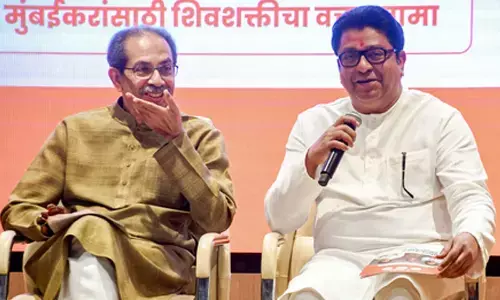How to apologise appropriately?

An appropriate apology will communicate three things: regret, responsibility, and remedy. Apologising for a mistake might look difficult, but it will help you repair and improve your relationship with others.
Have you ever apologised to anyone on committing a mistake? Do you have the tendency to apologise if necessity arises? Experts say that only those with high self-esteem and self-respect will seek an apology as and when needed. An apology is an expression of self-reproach for something you've not done correctly, and serves as a way to mend a relationship after that wrongdoing. Kindness occurs when the person who’s hurt is motivated to repair the relationship with the person who inflicted the hurt.
An appropriate apology will communicate three things: regret, responsibility, and remedy. Apologising for a mistake might look difficult, but it will help you repair and improve your relationship with others. We all grew up being forced to say "sorry", and while it worked well enough in elementary school, it lost some of its magic once our problems grew from breaking pencils to breaking hearts. Here are some steps to apologise appropriately.
Step1: Express remorse. Every apology needs to start with two magic words: "I'm sorry" or "I apologise";
Step2: Admit responsibility for your actions or behaviour, and acknowledge what you did;
Step3: Make amends;
Step4: Promise that it won't happen again. Here are some expressions of apologising:
(a)Please let me offer my apologies;
(b)I can't tell you how sorry I am for (committing this mistake.);
(c)Kindly forgive me for...(committing this mistake.);
(d)I'm extremely sorry to say that I was careless/silly/stupid at that time;
(e)I feel bad about...(committing this mistake.);
(f)Please pardon me for...(committing this mistake.);
(g)I'm sorry. It was my mistake.
Small Talk:
Well begun is half done!
Thapas Well begun is half done! Let's start talking about the company's expectation from you and the sales department.
Santhosh Thapas, I will try my best and I hope to not let you down.
Thapas Well, actions speak louder than words. Please put in mind that you should be responsible for every decision you make.
Santhosh Yes, I understand. With greater power, comes greater responsibility.
Thapas Good. The company hopes that sales for this year should have a raise of at least 5-10 percent. In addition to this, I observed that some of the employees in the sales department appeared to lose interest. I hope you can motivate them with new stimulations.
Santhosh I got it. I will start working on a fresh sales plan right away. I will have a meeting with the co-workers.
Thapas Ok. I expect to see a new and lively team.
Notes:
Well begun is half done - The beginning is the half of every task.
Example: Well begun is half done and the early bird catches the worm.
Know Your Vocabulary:
Choose the closest meaning and tick it.
1. misconstrue
a) suspect others b) draw to scale c) interpret incorrectly
2. mural
a) wall painting b) stone-like mineral c) sea shell
3. yield
a) surrender b) fight vigorously c) cast aside
4. exquisite
a) necessary b) very lovely c) mannerly
5. clique
a) select group b) delicate tap c) French model
6. arid
a) quite spoiled b) unusually smelly c) very dry
7. brocade
a) woven with raised designs b) stamped with ink c) edged with lace
8. laboriously
a) with deep feeling b) with hard work c) without interest
9. peril
a) geometric figure b) sudden loss c) danger
10. await
a) start suddenly b) delay momentarily c) look forward to
Key:
1-c; 2-a; 3-a; 4-b; 5-a; 6-c; 7-a; 8-b; 9-c; 10-c
Quote of the Week
“Don't use words too big for the subject. Don't say 'infinitely' when you mean 'very'; otherwise, you'll have no word left when you want to talk about something really infinite. - C. S. Lewis
(Clive Staples Lewis, 29 November 1898 – 22 November 1963, was a British novelist, poet, academic, medievalist, literary critic, essayist, lay theologian, broadcaster, lecturer, and Christian apologist. He held academic positions at both Oxford University [Magdalen College], 1925–54, and Cambridge University [Magdalene College], 1954–63.)

















